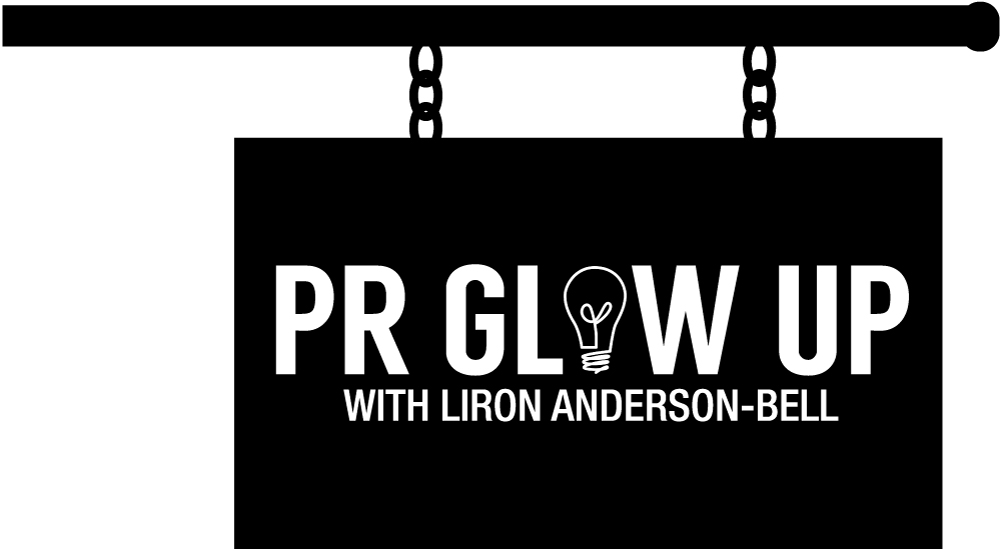The Big Mistake Public Relations Newbies Make That Puts Future Solo Success in Danger
/Whether you aspire to be a sought-after public relations consultant, communications lead at a brand, managing director of a PR firm, or a communications professor at a university — enduring (and crushing) the “newbie” phase in your PR journey is a tedious, but mandatory rite of passage if you want to excel and have a long, prosperous career.
Unfortunately, I haven’t come across a great deal of information that talks to the industry's new entrants about what to expect during this phase and resisting the temptation to run away from it, so I offer this post as a form of virtual onboarding.
Typical entry-level PR jobs and responsibilities
When you’re a PR industry newbie, you're employed in an entry-level role below the lowest managerial rung at a PR firm or on the communications team at a brand or organization. There are specific positions where the grunt work is concentrated. Depending on whether you’re at an agency or in house, newbie job titles are usually things like:
- Assistant Account Executive
- Assistant Communications Manager
- Communications Coordinator
- Public Relations Coordinator
- Intern
- Assistant
- Account Coordinator
- Junior Account Executive
These jobs are where the magic happens, and by magic, I mean learning.
Image: nbc
As I have noted before, there's a tremendous amount of study, training, rigor, mentoring, application, failing, and flawless repetition required before you are good enough to be released out onto the world as a communications professional — solo or otherwise. The reality is that establishing a strong foundation in PR basics is an active, ongoing and thankless part of the job when you’re new to the industry or re-establishing yourself.
It’s an exhausting existence. The requests are endless. You’re expected to finish assignments at lightning speed, without asking for help. You’ll probably get roasted when you make mistakes, and there is no down time. (Did I mention that the pay is bad?)
This is your work life, day in and day out, for your first year or two in an entry-level PR job.
This is also the point in a burgeoning PR career where many industry aspirants let pride and impatience get the best of them. Instead of persevering, they bail from agencies and other training grounds before they are organically promoted beyond the grunt work ranks, and – inexplicably – go into business for themselves.
That decision is a horrendous, short-sighted mistake!
Going solo too early in your career is a major career-mapping blunder.
Some of the frustrated, budding PR practitioners who go out on their own after one or two years on the job believe that they’ve absorbed industry basics and can fudge learn the rest as they go along. They've fallen in love with the industry and assume it’s a perfect match.
Others believe that their lowly newbie post was simply too small to hold their ambition, or that they’re naturally blessed with rare communication expertise that's going to put them on the map in record time.
They are all passionate about PR, but the truth about any career journey is that passion only gets you started.
The PR world always needs a strong pipeline filled with fresh talent (and I’m obviously in favor of entrepreneurship) but abandoning the crucial beginning learning stages to hang out a shingle means four things:
- you underestimate what's involved in professionally executing communication campaigns
- you overestimate your preparedness to provide professional communication counsel
- you are willingly forgoing the workplace experience, exposure to expertise, and opportunity to learn widely-accepted work product standards that are all “baked into” the newbie experience
- you’ll be disadvantaged compared to your competitors who waited until they had a solid amount of experience and a respectable body of work before going solo
Why do we put novices through this hell on earth?
From the employer’s perspective, there are a few good reasons to keep this rite of passage alive:
- this thankless work does, in fact, need to get done
- it’s nearly free labor (entry level PR gigs don’t pay well at all)
- these crappy assignments actually impart critical lessons and habits that will serve PR practitioners for the rest of their careers
It’s that last bullet point that justifies everything.
Drafting press releases that you know will be ceaselessly and mercilessly edited is uninspiring and seems futile, but after rewriting a few dozen you stop taking the edits personally and learn to respect the editing process.
Combing the web and calling media outlets every.single.day. to update your department’s media lists isn’t sexy. There’s no way to make it interesting. However, you’d be surprised how easy it is to remember the names of reporters and their beats after doing that kind of research for a few months.
Being “stuck” on media check-in duty at every event your company has for a year seems like some raw shiggedy. That is, until you need an excellent still photographer for a project and realize that you’re on a first-name basis with a dozen photographers because you’ve checked them in at so many events.
Aha.
Slogging through this stuff makes for eye-crossing days, keyboarding cramps, and sleeping like a mummy at night. It’s an exhausting existence but in the end, it really is its own reward. It’s the key to unlocking your PR Glow Up.
Also: you don’t know what you don’t know
I have a lot of go-to phrases, but there is none I love to masticate more than “you don’t know what you don’t know.”
I’m not a haterade-guzzling PR pro who thinks nobody will ever be as "good as we were back in my day," and I’m not going to haul out some curmudgeonly list of what it meant to “pay your dues” when I started out.
However, I do want to make the case for taking the newbie years seriously and approaching this phase thoughtfully — even methodically — because to me, ditching this important learning stage to start any type of PR practice is the professional equivalent of a cannonball jump into the Mariana Trench.
The Mariana Trench is literally the deepest part of the world's oceans. Imagine yourself doing a cannonball into that deep blue abyss.
You’ll definitely make a big splash and grab a good deal of attention, but to what end? The water in the Mariana Trench is unfathomably deep (see what I did there?) and you’re guaranteed to experience major challenges getting out by yourself. There are untold wonders to behold, but if you’re a weak swimmer or don’t have the right tools with you, someone will inevitably have to save you from drowning. The deeper you dive, the greater the pressure.
Worst of all, it’s largely uncharted territory (to you). In other words, you don’t know what you don’t know.
Why even put yourself in that position? Don’t be that guy/girl.
If you’re already that guy/girl, your solo career can be salvaged, but you MUST commit to identifying gaps in your capabilities and doing the intense remedial work to build yourself up in those areas.
Inspiration and Resources
PR Glow Up: Eight tips for surviving the newbie stage of your career
For this post, the inspiration and resources are all originals, from me to you:
- Stop looking for shortcuts. Again, you don't know what you don't know.
- Remember that you're not the smartest person in the room. Not yet. Not for a while, actually.
- Read books by people who've been in PR long enough to write a book. I mentioned previously that this one is my fave, and this is a good one too.
- Bust your butt at an agency or firm for a few years - doesn't matter how big or small.
- Join a professional PR association in your city (PRSA, IABC, BPRS, HPRS) and don't just go to general meetings and holiday parties — join a committee.
- Sign up for PR industry email lists and newsletters. Read the articles they send out, click links to related articles, and sign up for every single one of the free, PR skills-building webinars you come across.
- Be a reader of everything. Books, blogs, newspapers, slide presentations, speech transcripts – it all counts. Just read.
- Pay attention to the relatively evergreen "10 things not to do when pitching reporters" lists and infographics published in industry newsletters. Every single one of them is right. Yes, they all provide iterations on the same handful of tips, but new ones keep getting released because lame PR people (who probably went solo too early!) keep making the same mistakes.











